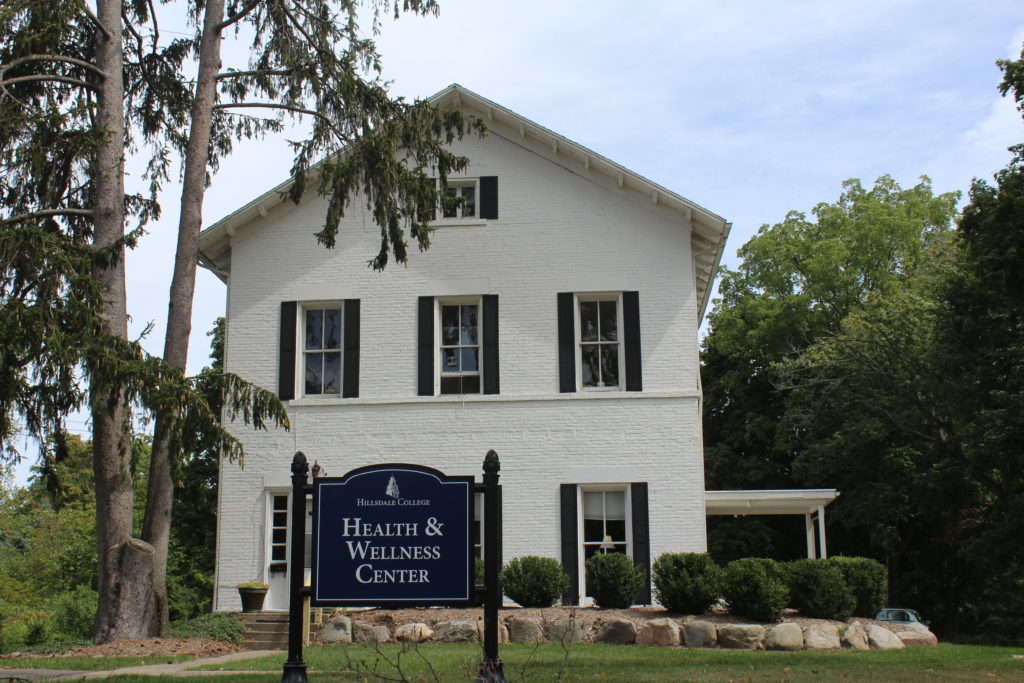
Anxiety, depression, and stress afflict more Americans than ever before, and Hillsdale students aren’t immune from that trend, according to members of the administration and staff.
A study published in April by Psychiatric Services reported that 3.4 percent of Americans described themselves as suffering serious psychological distress, while that figure never surpassed 3 percent in previous evaluations. At Hillsdale, there’s been a 55-hour increase in weekly counseling appointments at Health Services since 2010.
Dean of Women Diane Philipp said she does not believe students on Hillsdale’s campus differ from their fellow Americans, and the college is prepared to meet that need.
“[Students’] emotional, physical, and spiritual well-being is something we care about. It is important to us that our students are healthy,” Philipp said in an email. “If they are strong, they will perform well in the classroom and live happier lives.”
Director of Health Services Brock Lutz emphasized the challenge of tracking the increase in psychological stress within and outside the college — are individuals truly suffering more, or do people feel more confident in asking for help with the decrease in stigma and the increase in resources?
Lutz exemplified this phenomenon with the 55-hour increase in weekly counseling appointments at Health Services in the last seven years. More people seek counseling now because the opportunities exist — but does that mean more people need professional help in 2017 than in 2000?
“Walking on campus six years ago, it’s tough to say, ‘people here are more depressed now than they were,’” Lutz said. “I think we have more resources for people, and I think we’re talking about these things more with students and faculty and staff. And so in that regard, I think it’s probably easier for people to access help.”
Between one-on-one therapy, support groups, campus clubs, and activities, both Lutz and Philipp said the college wants to provide help to students in any degree of psychological distress.
As the president of Lighthouse, a club that promotes mental health, senior biochem major Taylor Hannel said her organization works to educate people about mental illnesses and break any stigmas surrounding those problems to foster vulnerability on campus. But Lighthouse itself does not exist to pull a student out of crisis mode. Instead, the group directs students to resources that can help them.
“We’re not here to help anyone solve their problems, but we are here to point them in the directions of the resources that we have on campus,” Hannel said. “And this campus has a ton of resources.”
Hannel, Lutz, and Philipp each cited people, activities, and facilities a student can turn to whether she struggles with clinical mental health concerns or the overwhelming existential questions college can pose. While Hannel emphasized Lutz and his staff of counselors as essential campus resources, Lutz said students can also find mentors in the deans, in their professors, and in other faculty members.
For those who need no more than stress relief, Philipp said the administration creates fun activities designed to help students relax. Activities such as residence life events, intramural and club sports, Student Activities Board programs, cadence runs, yoga, and cycling classes all contribute to this effort, she said.
“It’s okay to struggle — that doesn’t define who you are,” Hannel said. “There are people here who are willing to walk with you on your journey.”

